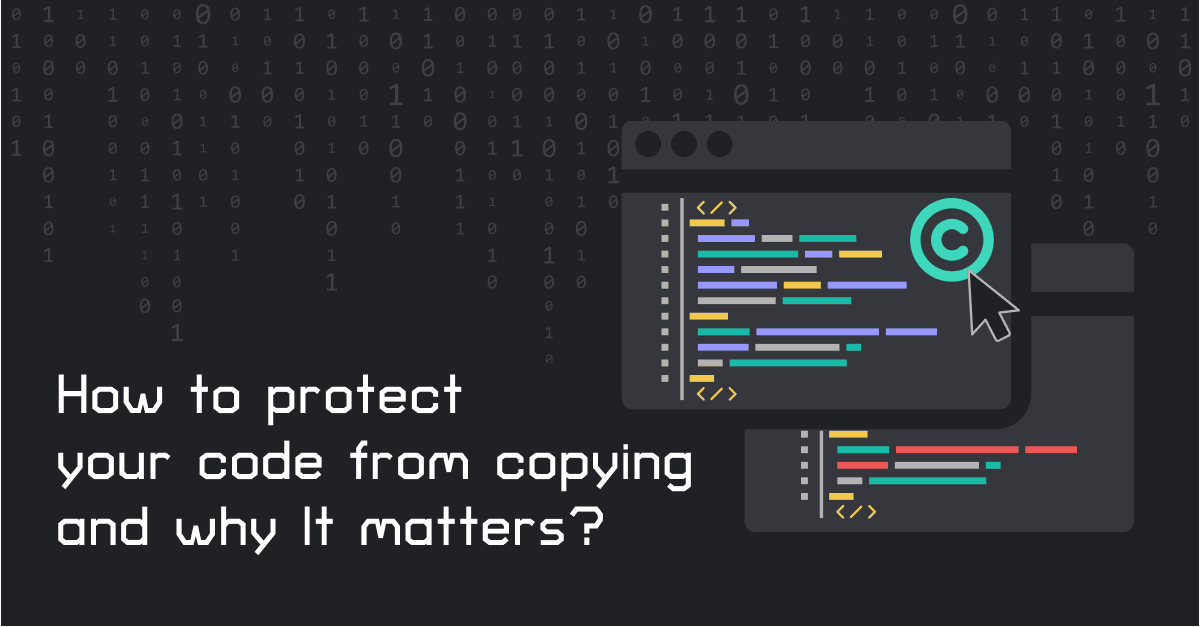Copyright in programming: protecting your code and why it’s crucial for developers
Nov 29, 2024In the fast-paced world of programming, intellectual property is one of the most valuable assets a developer can own. Whether you’re a freelancer, startup founder, or part of a development team, understanding how copyright applies to your code is crucial. This guide explores why protecting your code matters, the key steps to safeguard your intellectual property, and how to navigate potential legal challenges.
What Is copyright in programming?
Copyright is a legal framework that protects original works, including software code. When you write code, it becomes your intellectual property (IP), meaning you hold exclusive rights to reproduce, distribute, and modify it. However, the legal nuances can vary depending on jurisdiction, employment agreements, and licensing terms.
Key aspects of copyright in programming:
- Automatic Protection: In most countries, copyright protection is granted the moment the code is written, as long as it is original and fixed in a tangible medium.
- What It Covers: Copyright protects the specific expression of an idea (the code itself) but not the underlying idea, algorithm, or functionality.
- Duration: Copyright typically lasts for the lifetime of the author plus an additional 50–70 years, depending on the country.
Why copyright matters in programming
For developers, copyright isn’t just a legal technicality—it’s a strategic advantage. Here’s why:
Steps to protect your code
- Document Your Work
Keep detailed records of your development process, including version histories and timestamps. This can serve as evidence of ownership in legal disputes.
- Register Your Copyright
While copyright is automatic, registering it with the relevant authorities provides additional legal benefits, including the ability to claim statutory damages in some jurisdictions.
- Use Licensing Agreements
Clearly define how your code can be used through licenses such as:
— Proprietary Licenses: Restrict use to specific terms.
— Open-Source Licenses: Allow broader use with conditions (e.g., MIT, GPL).
- Secure Your Codebase
Use version control systems like Git to track changes and secure repositories to prevent unauthorized access.
- Employment and Contractor Agreements
Review contracts carefully to understand ownership rights. Many companies require employees to sign agreements that assign code ownership to the employer.
- Trademark and Patent Considerations
While copyright protects code, patents can protect unique processes or algorithms, and trademarks can safeguard brand elements related to software.
Copyright challenges developers face
- Work-for-Hire vs. Independent Work
Employees often transfer code ownership to employers through work-for-hire agreements, while freelancers retain rights unless explicitly stated otherwise.
- Open-Source Contributions
Ensure compliance with open-source licenses when incorporating external libraries or frameworks into your projects.
- International Jurisdictions
Copyright laws vary by country, so understanding international implications is critical for global projects.
- Code Plagiarism
Modern tools like GitHub Copilot raise concerns about unintentional copyright violations, emphasizing the need for vigilance.
Copyright in open source: myths and realities
The open-source movement thrives on collaboration, but it doesn’t mean "no copyright." Contributors still retain rights to their work and dictate usage through licenses. Understanding these licenses ensures compliance while benefiting from open-source innovation.
Conclusion: protecting your code is protecting your future
Copyright in programming is not just a legal safeguard — it’s a foundation for ethical collaboration, financial security, and professional credibility. By understanding the basics of copyright law, applying the right tools, and maintaining vigilance, developers can protect their code and secure their place in a competitive industry.
Whether you’re a seasoned programmer, a freelancer, or a startup founder, protecting your code is an investment in your future success.
Looking for your next project? Apply on Devler.io and collaborate with top clients who value your skills and respect your intellectual property.
